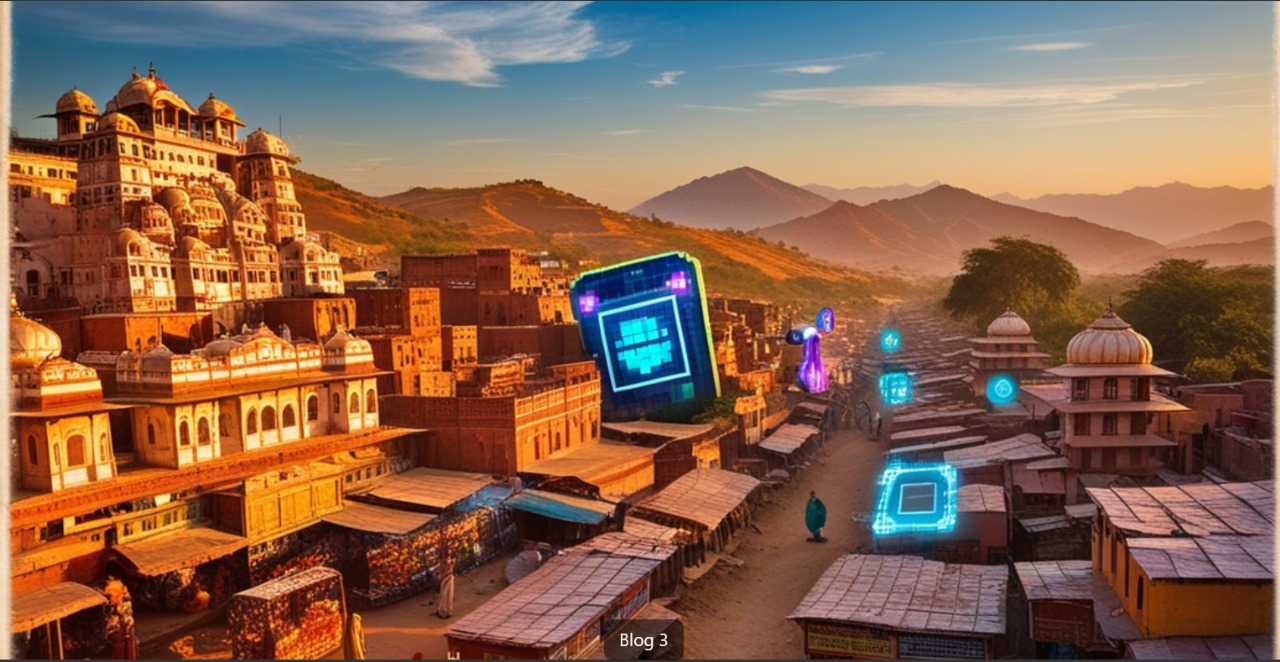MLM Platforms to Be Built in Rural India: How Tech is Driving The Future?
Multi-Level Marketing has become a popular strategy in India and gives individuals the opportunity to create their own companies by marketing and recruiting others. In rural areas such as Churu, Jhunjhunu and Hanumangarh in Rajasthan, MLM platforms are redefining the business landscape. Digital revolution has empowered the entrepreneurs in the countryside, giving them tools and platforms that were once exclusive to the city. This blog is about the technological evolution of MLM platforms in rural India and how they are becoming a major driver of rural growth and economic empowerment.
MLM – Emerging in Rural India:
1. Technology Accessibility & Affordability: In rural areas, cheap phones and internet connections have made it possible for people to become involved in MLM business. 4G connections have also transformed the rural landscape by making it possible for those who live in the outlying areas to receive online training programs, webinars, and marketing materials for their MLM companies. Today, small business owners from rural areas such as Jhunjhunu are just as likely to own a lucrative MLM business as they are in Jaipur or Delhi.
2. Low Start-up Cost: The first and foremost reason MLM is a very attractive business for rural Indians is the affordable cost of starting it. Most MLM platforms don’t require a large investment to begin with. Rural residents who may lack access to funds or a job may be able to get into MLM by buying a limited supply or becoming independent distributors. That makes it the perfect choice for people who want to earn their own money.
3. An Entrepreneurs Platform: Rural India is rich in talented entrepreneurs who were, up till recently, deprived of formal business education and opportunity. MLM platforms, with their simple business models and training materials, provide an opportunity for these entrepreneurs to start their own businesses. Hence, a small-scale farmer in Churu or a small-scale retailer in Hanumangarh is now able to become an effective MLM distributor as technology gives them the tools and resources to scale.
Why MLM Platforms Are Good For Rural Businesses:
1. Easy to Use and Access: With the use of mobile apps and platforms, MLM businesses can be run with greater ease. Rural entrepreneurs track sales, manage their downline (their community of affiliates), and view orders from their smartphones. It has simplified the transaction and makes it available to people who might not have high-level computer knowledge but can handle mobile devices.
2. Education: Most MLM systems provide training courses that can help new users learn how to sell products, recruit members, and scale their businesses. These programmes are typically taught in local languages, so that those in the countryside can learn them more easily. By giving rural owners a platform to learn, MLM platforms are paving the way for a new generation of entrepreneurial owners.
3. More Profits: One of the greatest advantages of MLM for rural communities is that you can generate money from different sales levels. As MLM platforms grow, people are able to earn commissions both from the sales they’ve made and the sales of the individuals they’ve enlisted. This builds an economically viable model that can provide long-term cash flows to rural smallholders, even in poorer areas.
4. Building Networks: MLM platforms enable the people of rural India to make contacts with other people locally and internationally. By recruiting new members and marketing products, small farmers expose themselves to wider markets. This is especially useful in rural communities where conventional marketing may not be as prevalent. Online platforms give rural entrepreneurs access to a vast network of potential consumers and suppliers.
The Future of MLM in Rural India:
1. Growing Digital Literacy: As technology improves, rural communities are growing in digital literacy. Rural entrepreneurs have become digitized, and adopt digital technology not only for marketing but also for product innovation. Thanks to greater access to technology, the rural world will become a MLM business hub.
2. Integration with E-commerce: MLM sites increasingly work with e-commerce sites to let rural entrepreneurs sell their goods online. By linking MLM and e-commerce, rural entrepreneurs can spread their business and tap into global markets, providing new sources of income.
3. Development: MLM is also promoting sustainable development in rural India. Most MLM platforms cater to sustainable products, organic products and indigenous crafts, and offer rural business owners the chance to sell sustainable products. This, in turn, keeps local culture alive while promoting green businesses.
Technology is changing the MLM industry in rural India and platforms catering to the rural entrepreneur are helping to create a new breed of entrepreneur. Through providing affordable, accessible, and cost-effective business models, MLM platforms are enabling individuals from places like Churu, Jhunjhunu, and Hanumangarh to start their own successful businesses. As technology evolves, rural India’s MLM market is likely to expand more than ever, bringing new avenues of economic development and independence.
- Home
-
Services
Web Development
- Business Website Development
- E-Learning Website Development
- E-Commerce Website Development
- Service Website Development
- NGO Website Development
- Web Development in Jaipur
Mobile Apps
Game Development
- IOS Game Development
- ANDROID Game Development
- AR Game Development
- VR Game Development
- Ludo Game Development
Application Development
- CRM Application Development
- Financial Accounting Software Development
- Hospital Management Software Development
- HR Application Development
- Inventory Management Software Development
- Education App Development
- Hotel Management Software Development
- Sports/Fitness App Development
- Health Care App Development
- Dating App Development
- Entertainments App Development
- Food Delivery App Development
Multi-Level Marketing Software Solutions
- Binary MLM Software Development
- Matrix MLM Software Development
- Autopool MLM Software Development
- Single LEG MLM Software Development
- Differential Plan MLM Software Development
- Binary+Autopool MLM Software Development
- Level Plan MLM Software Development
- MLM Software Development in Delhi
Graphic & Web Designing
SEO & SMO Services
App Development Solution
- About Us
- Portfolio
- Contact Us
- Blog






